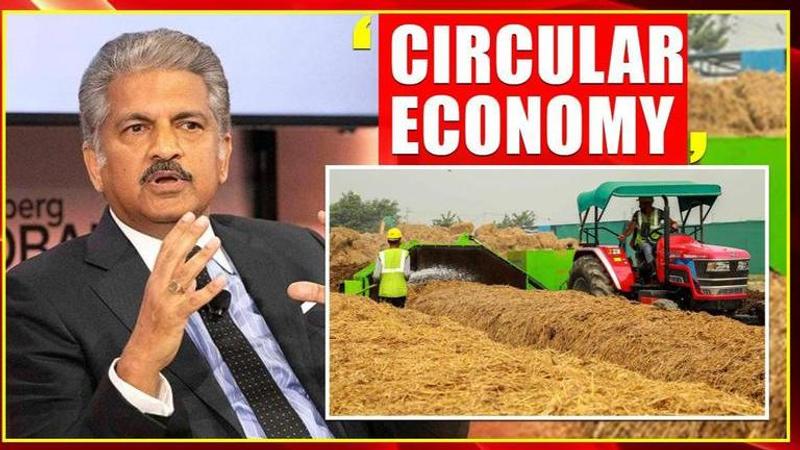Published 14:59 IST, November 6th 2019
Anand Mahindra shares a 'profitable' fix to disposing of stubble
Mahindra Group chairman Anand Mahindra on Wednesday shared a sustainable solution to the stubble burning that pollutes the air over Delhi and surrounding areas.

Mahindra Group chairman Anand Mahindra on Wednesday shared a sustainable solution to stubble burning that is the major contributor to air pollution in Delhi-NCR and surrounding regions. He retweeted a post by Naandi Foundation CEO Manoj Kumar where Kumar apprised of his foundation's recent purchase of nearly 800 metric tons of paddy residue from farmers of Palla village in Delhi to prevent them from burning it. Mahindra expressed his hope for solutions to Delhi's pollution problem and suggested there exists a profitable way for farmers to dispose of paddy residue.
Under the Foundation's urban farm initiative, the firm aims to bring organic farm products grown around Indian cities to consumers. The purchased stubble, according to Kumar, would be used as manure after being composted. Anand Mahindra must have also been pleased to see his company's 505 DI tractor being used for the initiative. Earlier, Manoj Kumar had thanked Mahindra Group's Chief Marketing Officer Vivek Nayer on Twitter for the contribution of the automobile maker's in the initiative. "MahindraRise has been the bedrock of my audacity to work with communities to fight poverty by creating a new blueprint for agriculture in India (sic)," Kumar had said on the micro-blogging site.
A solution to paddy residue burning
According to agricultural scientist MS Swaminathan, often referred to as the ‘father of India’s Green Revolution’, paddy residue frequently burned by farmers in North India can be processed into making valuable items like cardboard and animal feed. "In South India, stubble is not burnt as there's economic value as animal feed. For years I pointed out many economic uses of rice straw. We should adopt a do-ecology approach with farmers to convert rice stubble into income rather than making them agents of eco-disaster (sic)," Swaminathan had previously said in a tweet. He had suggested that a 'rice bio park' be set up by the government where stubble can be utilised as a raw material to make products including paper, cardboard and animal feed. "I suggest that the Delhi, Haryana and UP govts put up Rice BioParks where farmers can convert stubble into income and employment. We should stop blaming farmers since it will take us nowhere. Instead, we should propose methods which are economically & ecologically desirable (sic)," he had said in another tweet.
Updated 18:07 IST, November 6th 2019




